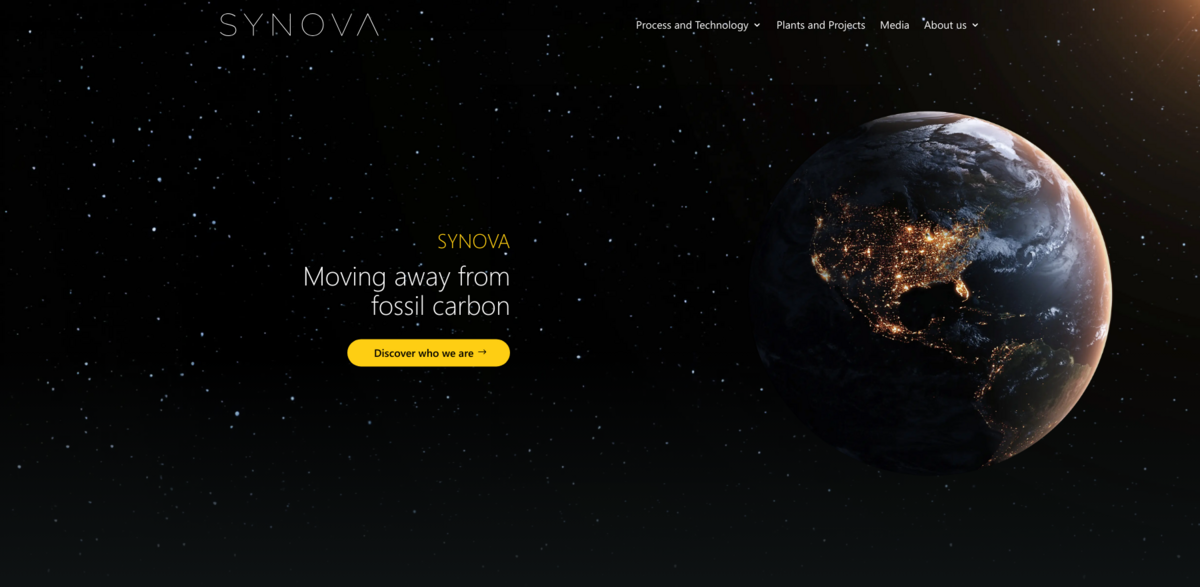What the Project Is
SYNOVA – MOVING AWAY FROM FOSSIL CARBON – is an innovative licensor and supplier of proprietary technologies for molecular recycling of plastics. SYNOVA’s advanced recycling technology is uniquely poised to close the current gap in the plastic supply chain by converting mixed plastic waste streams into base chemicals like olefins, aromatics, and styrene. These base chemicals serve as the building blocks for new plastics with virgin quality. Interestingly, this breakthrough technology has also demonstrated potential in biofuels. There’s something compelling about a process that takes contaminated, less sorted feedstock from household and industrial waste and transforms it into high-value products… It’s a real game changer in the quest for enhanced sustainability.
Main Benefit
Key figures and facts underline the superiority of SYNOVA’s approach:
- Only 9% of plastic waste is currently recycled, highlighting a pressing need for innovative solutions.
- The process converts mixed plastic waste directly into valuable olefins – for instance, ethylene, propylene, butadiene, and benzene – without the disadvantages of pyrolysis or gasification.
- In cases of polystyrene waste, the process directly yields styrene monomer.
- The technology uses feedstock that may include water, inert materials, and biogenic components, meaning that sorting requirements are drastically lessened.
- The approach provides a direct route to new plastic building blocks which results in higher yields, reduced costs, and an attractive CO2 footprint.
The Challenge of Plastic Recycling
Only a small fraction – around 9% – of the plastic waste produced is actually recycled. This is clearly insufficient to meet current sustainability objectives related to recycling and CO2 emissions. The industry is at a critical crossroads, and it’s evident that new recycling methods are required to bridge this gap. SYNOVA’s waste-to-olefins process stands out because it not only addresses the recycling deficiency but does so by converting waste into chemicals that can replace virgin fuels. It’s a refreshing change from conventional methods that simply burn plastic or downcycle it into lower quality outputs.
Proprietary Technology and Unique Feedstock
SYNOVA’s technology is remarkable – and not in the typical sense found in many recycling options. Instead of relying on pyrolysis or gasification, the process uses a solids cracker operated under conditions similar to conventional steam crackers used for liquid and gas processing. This method heats the waste feedstock incredibly fast to temperatures high enough for generating targeted valuable products directly, while cleverly limiting the production of less valuable condensables and solid residues. Yet, it avoids over-cracking to less valuable hydrocarbons and the problematic salt-related melting issues. This unique balance makes the technology truly stand out in its field.
Sustainability & Global Partnerships
SYNOVA’s approach is both environmentally sound and economically attractive. The technology produces chemicals through a direct conversion process that involves only one step, thereby offering an attractive overall CO2 footprint and high circularity – not to mention its compatibility with biogenic feedstock. Such innovations are essential in a world where enhancing plastic circularity is critical. On top of that, SYNOVA has joined forces with world-class technology partners, like Technip Energies for commercialization and licensing, Trinseo for developing the polystyrene-waste-to-styrene process, and TNO, which supplies valuable test facilities and expert advice. This network of collaborations adds extra credibility and global reach to the project.
Project Impact
The positive impact of SYNOVA’s technology resonates even with international sustainability goals. Its benefits are closely linked to several key Sustainable Development Goals (SDGs), such as:
- SDG 9: Industry, Innovation, and Infrastructure – by pioneering a new pathway to reuse plastic waste.
- SDG 12: Responsible Consumption and Production – through the efficient conversion of mixed waste to high-quality chemicals.
- SDG 13: Climate Action – by offering an attractive alternative to fossil-based production and reducing CO2 emissions.
Technology History & Future Outlook
SYNOVA’s journey began in 1999, when the technology was first being developed to transform the future of plastic recycling. Over the years, and through a close collaboration with TNO, the technology has been refined, patented, and scaled up to its present form – one focused on molecular recycling. This evolution involved shifting focus from simply producing energy to addressing the need for virgin-quality recycling. The project now includes several commercial demonstration plants in various parts of the world, enhancing its credibility and paving the way for broader commercial adoption. It’s clear that the path forward is full of promise and potential, with the technology ready for net-zero carbon emissions and a market eager for cleaner, more sustainable solutions.


















